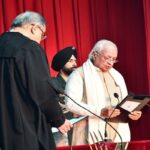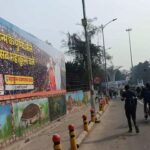Football is not only a game but a phenomenon that breaks borders and unites. From the fields of Brazil to the stadiums of Europe, soccer reflects the dreams, challenges, and emotions of entire nations. It shows and observes the political climate of the countries, culture, and people’s history.
Soccer as a Cultural Symbol
Football is the pulse of many countries and reflects their fundamental principles and the story of their development. In Brazil, people consider it a uniting factor for people of all classes to celebrate their nationality. On the other hand, soccer in Argentina symbolizes the struggle against political dictatorship and economic instabilities represented by the clubs and national teams, respectively. For instance, soccer in countries like England relates to class history, such as industrial towns and cities.
Soccer can create the feeling of being a team member, even across countries. International competitions such as the World Cup assemble nations as a team, thus politicizing the game and transforming it into an embodiment of national ambition. Much like NBA odds reflect the strategic considerations and expectations surrounding teams on an international stage. Therefore, the behavior of each team demonstrates the respective features of the given country – be it the colorful and happy-go-lucky nature of Brazilians or the methodical and precise German conduct on the field. Soccer can, therefore, be understood as being more than a game, since it is the reflection of society’s culture.
Political Influence on Soccer
Soccer and politics are intertwined, and politics has been used to support ideologies or to gain support for themselves. Prominent politicians have embraced soccer to sway the public’s opinion, sometimes using it to divert attention from other issues. Platforms like Melbet Mongolia Facebook provide an engaging space for fans to follow and bet on the sport. They reflect the deep connection between soccer and society and how leaders may leverage the game for influence. Critical examples of political influence on soccer include:
- The 1978 World Cup in Argentina: The military dictatorship used the event to ensure that it received a political mandate from the people of Chile.
- Franco’s Spain: To demonstrate the power of his government, Francisco Franco supported Real Madrid.
- Putin’s Russia: The same can be said about organizing the 2018 World Cup, which was regarded as an effort to improve Russia’s image.
This means the connection between soccer and politics often transforms stadiums into fields where national, social, and political struggles occur.
National Teams as Political Instruments
National soccer teams have been in the past and are still being used as a tool of power and diplomacy, that is, power and diplomacy in the sporting arena. Soccer triumphs have been used to rally people, especially by governments, especially dictatorial ones, distract people from chaos, or propagate nationalism.
National Success and Identity
National soccer success thus always assumes a central place in a country’s national identity. In Brazil, the five titles of the national team are regarded as pride, a source of unity, and the manifestation of the country’s culture. For Germany, winning tournaments is considered proof of efficiency and ability to work, a declaration of their orderliness after the reunification. These moments of victory in the stadiums impact how people of a nation see themselves and how the world views them.
Protest Through Soccer
Soccer has also served as a weapon of protest, enabling players and fans to protest against political regimes. In the 1978 World Cup, the Argentine people took advantage of the international audience to make the world aware of the genocide by the military government. Recently, some athletes such as Marcus Rashford have advocated for change on social issues, including food poverty in the United Kingdom. The game offers a platform where political resistance can be expressed in a manner that is beyond speeches and protests, reaching millions of people in the world.
Club Rivalries Reflect Political Divides
More often than not, club soccer rivalries reflect nations’ most significant political and social cleavages. These rivalries are not just about winning on the field, but about representing distinct ideologies:
- Barcelona vs. Real Madrid: Symbolizes the side of Catalonia that wants independence from Spain vs. the Spanish government.
- Celtic vs. Rangers: It depicts the conflict between the Irish Catholics and the Protestants in Scotland.
- Lazio vs. AS Roma: The film represents the fight between fascism and the left-wing political movements in Italy.
They transform matches into an arena for these other struggles, and the fans, similarly, pass on these struggles across generations.
Soccer and Diplomacy
Soccer has been used for a long time as a diplomatic way of either fostering relations between two countries or as a way of showing existing conflict. In 1970, the “Soccer War” between El Salvador and Honduras occurred after a World Cup qualifier match because of longstanding issues of territorial and immigration conflict. On a more positive note, ping-pong diplomacy was reflected in the game between the U.S. and Iran, where the two nations that had been enemies for years came to talk about the game of soccer in the 1998 World Cup. Thus, soccer’s global appeal allows states to perform symbolic actions, while it may sometimes reopen old conflicts.
Final Thoughts
The beautiful game of soccer is much more than a sport. It reflects nationality and becomes the playing field of political struggles and diplomacy. The Beautiful Game is as much about the human drama of the game as it is about the football field, and all the other drama in the world is mirrored here.













